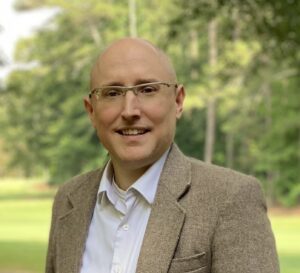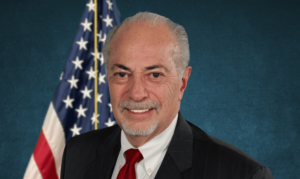The Peachtree City Council recently voted a second increase in salary for city employees for the coming fiscal year that will increase spending by over $900,000. Why I am concerned:
• Based on what I consider to be a flawed study (more on this later) Mayor Vanessa Fleisch and Council members Terry Ernst and Mike King voted to increase city spending $936,039. The council had already approved $270,000 for raises and put on hold an additional pay raise amount to assess “salary compression.” It is estimated in The Citizen newspaper that over $660,000 will need to come from new taxes, reserves, or cuts elsewhere to pay for the changed pay raise direction.
• The gestation and implementation of this study is, in my opinion, highly suspect. It appears the $40,000 study was not approved by the council but by signing authority of City Manager Jim Pennington without oversight. Once he approved the $40,000 expenditure, the selection of the firm to conduct the study was selected by the same employees group that would benefit from a study indicating a need to increase salaries. Would it not be more appropriate if this were a legitimate exercise to have an independent citizen group review and make the selection of the firm to make the study?
• In presenting the study by Condrey and Associates, there was a good bit of time establishing the authority of study author Stephen Condrey. Having worked in state, local, and federal government environments for 25 years, that raises a red flag to me. It is used in many cases to intimidate anyone questioning the study deliverable. In my opinion there is a lot to question.
• In presenting the study it is mentioned that Stephen Condrey is the author of the book “Human Resources Management in Government.” When I look at the book on Amazon it lists him as the editor, not the author. A subtle but significant difference when considering the book as an element of his authority.
• In a letter to the editor, PTC resident Franco Artiles labeled this study the 35 percent lie. Why? If you take time to review the study, common sense and critical thinking will tell you that Peachtree City for the most part does not use the same job market as the cities in the study.
I cannot see where our market for employees overlaps that of Dunwoody. We do overlap with Fayetteville, but they were not included as a comparison city. The study readily admits to comparison cities with three times the PTC budget. Why not cities with one-third the budget? Overall it appears as if the study is using comparison cities that have budgets larger than Peachtree City, and with the exception of Newnan all are located quite a distance from Peachtree City.
So the study declaration that PTC employees were paid at 35 percent of the market rate seems to be based on flawed input as far as I can see at this point.
• Regardless of the study being right or wrong, I am concerned that Mayor Fleisch and council members Ernst and King were in a rush to add over $660,000 to the taxpayer burden without a critical review of this study that seems to have been organized by the same employees that would benefit from a recommendation of higher salaries.
After asking some questions, my understanding is that the study was first seen by the council at the Sept. 16 workshop and Mayor Fleisch wanted a vote two days later at the next council meeting. She was talked down to a vote about two weeks later.
Why the rush? Why did I not hear anyone voting in favor of this increase voice any concern for the taxpayer? Why were the pleas of council members Learnard and Imker to delay the approval to allow adequate time to understand and question the study ignored? Were the council members that voted to implement the pay raise intimated by the many employees demonstrating in support of the study and pay raise? Who was looking after the interest of the taxpayers?
• In a newspaper article council member King was quoted as saying, “I do not necessarily see a future tax increase due to projected increases in both property values as well as well as a markedly up trend in sales tax revenue forecast for the upcoming fiscal year.”
However, when we look at the approved PTC budget we see that it has already factored in future increases of property values and sales tax revenue. Property values in that budget are projected to increase 2015 – 2019 by 1.48 percent, 2.50 percent, 2.50 percent, 3.00 percent, and 3.00 percent. Sales tax revenue increases in the budget are already factored in for 2015–2019 as 0.80 percent, 0.80 percent, 1.01 percent, 2.14 percent, and 2.82 percent. Is council member King proposing additional property tax or sales tax increases or is he not aware of the approved budget which already includes increases? Where does he expect to find the revenue to eliminate a tax increase?
• What was included in the total package and what comparisons were made? Were benefit packages included in the study? I am amazed that Peachtree City still offers employees a city paid retirement that will vest after 5 years of service. To my knowledge those type of retirement plans just do not exist anymore. Did any of the comparison cities in the study have a similar plan?
• Pension liabilities are the primary cause of the recent bankruptcies in local governments. New regulations by Government Accounting Standards Board (GASB) have been implemented to ensure the public is aware of these liabilities so there are no surprises as there have been in some of the recent city bankruptcies.
GASB 67 requires that long-term pension liability must be calculated this year. Has that been done to take this salary increase into account? If yes, what is that liability and how does it compare to the computation prior to the increase?
GASB 68 has requirements for governments to begin reporting on long-term pension liabilities in financial statements next year. Has there been any analysis of the impact of this salary increase and the related 30-year liability on pensions and the PTC financial statements? If so, what does that analysis show?
My understanding is that this is important for the public to understand the true pension liability costs, and it may impact the interest rates we pay on loans and bonds which have a negative effect on future budgets. I don’t think we want to be another Detroit.
• City Manager Pennington was shown on Channel 2 News saying that PTC has a morale problem over pay. I am concerned that this statement put our city in a bad light area wide. I am more concerned that the facts show our turnover rate from June 2013 to June 2014 to be 9.8 percent for full-time employees compared to an industry/government average turnover of about 15 percent. If PTC salaries were so bad, I would think the turnover rate would be higher. I have to wonder whether the morale issues if they exist are related to salaries or leadership.
• Mayor Fleisch is quoted as saying when she was elected to council 5 years ago many of the PTC employees told her they “hated” working here. My understanding is that five years ago the employees had just received a 6.35 percent pay increase for the fiscal year beginning October 2009. The employees got that raise just as the economy went into the tank.
If you remember at that time all over the country people were losing jobs and unemployment was soaring. Many workers were taking large pay cuts just to remain employed. Yet according to the mayor, our PTC employees “hated” working here. I don’t know about you, but airing that in public is not a morale booster in my opinion. As a manager I was always told that morale was a function of leadership.
• Finance Director Salvatore indicated a possible need to increase the tax rate by something around .65 mills next year. In a newspaper article he indicated that this is would be about a $65 increase for the average home, and if Zillow is correct that the average price of a home here is $259,000 then his estimate is correct.
Although the city is legally only allowed to budget annually, the city uses a multi-year budget for planning purposes. If we look at that tax increase over 5 years and take into account the expected increases to property valuations above, then the overall increase to the average home taxpayer will be about $360.30. A homeowner today with a house valued at $400,000 will see a five-year tax increase of about $556.
While the $360.30 may not be significant to some, I am aware of senior citizens in our community on limited fixed incomes. Who was looking out for their interest?
So those are some of the reasons why I am concerned when I look at the process and results of the study leading to our almost $1 million dollar increase in city employee salaries.
In reading this lengthy diatribe you may think I am against compensating the city employees. That is far from the truth. I personally believe we have a super set of city employees that deserve our respect and comparable compensation at a high percentile to our served market. As demonstrated at the Aug. 21 budget hearing, raw salary data from neighboring cities (our market) was shown that our city employees were already the best paid in the local market and that was before the 2 percent pay raise afforded at that time.
As for the employees demonstrating their case at the council meeting, that is not a concern to me as that is their right. If I were an employee I would probably want to make my views known also. These concerns are not about the value of the city employees, it is about the processes used to commit large expenditures of taxpayer dollars.
In the end it may be that my concerns are not justified. But with the information available so far and the rush to approved such an expense there are reasonable questions that need to be answered. The focus of my concern is how this study was contracted, executed, and implemented and how we will pay for it.
We now have over $660,000 of new taxpayer burden, and the process used is a concern as well as the validity of the study. It appears that those voting Aye were not concerned enough with the taxpayer that put them in their seat to make sure we got this right and accepted the study that was managed by the people that would benefit from it.
Maybe I am misreading it but there sure seem to be enough concerns that we should have taken a more measured approach to such a large increase in our expenses.
I hope to better understand the processes used and the study results. I will be asking via an open records request for a copy of the proposal RFP issued by PTC for the study, the name and positions of ALL those who made recommendations to Dr. Pennington for selecting the contractor, a copy of the contract, any guidelines issued by PTC for the study deliverables, for the raw study data, the name and positions of those reviewing the study, and for a copy of the study report issued.
Once I have that open records information it will be posted on the website we will be bringing up at www.PTCPride.org. So that as far as possible what happens in Peachtree City stays in Peachtree City, folks registering for access will need to have a valid email address and be a registered PTC taxpayer. All information gathered in the registration process will be considered private and confidential and not shared with anyone.
Only 21 percent of Peachtree City residents voted in the last election — we can do better. Join us at PTCPride.org to review the documents requested from Peachtree City via an open records request. It is your government and your tax dollars.
Randy Boyett
Peachtree City, Ga.











Leave a Comment
You must be logged in to post a comment.